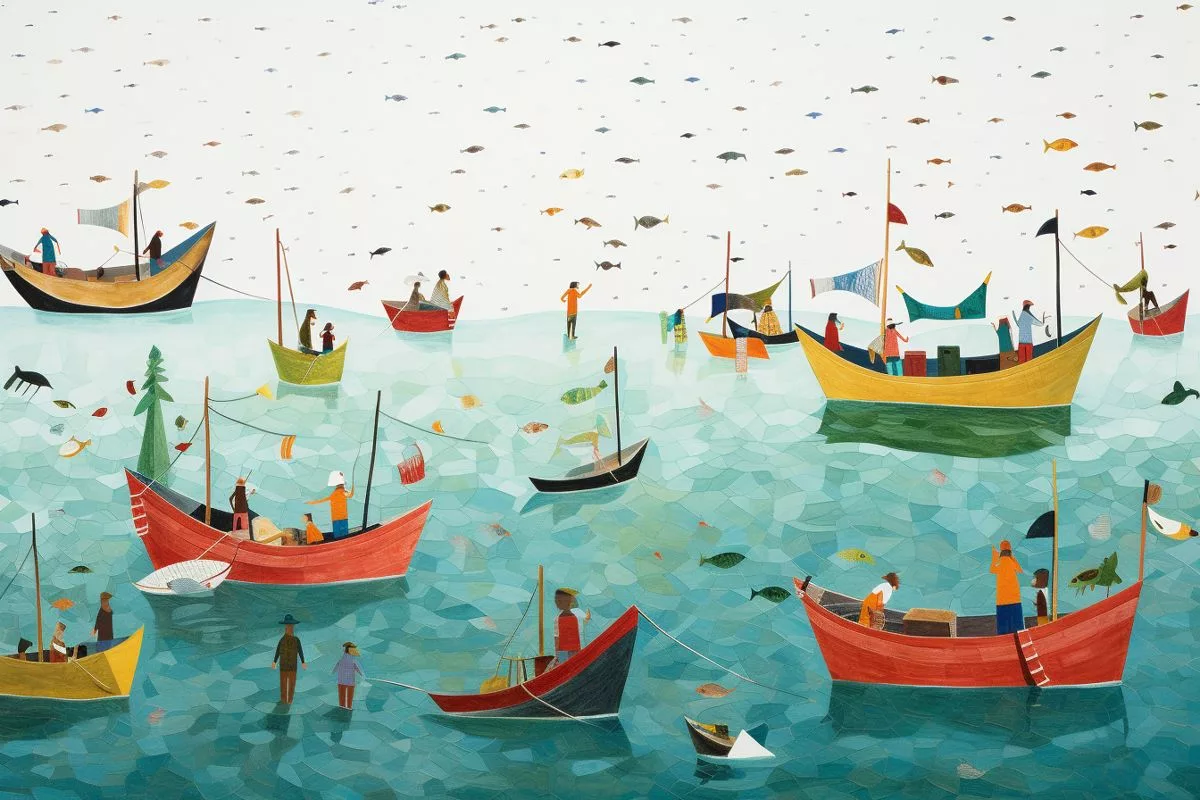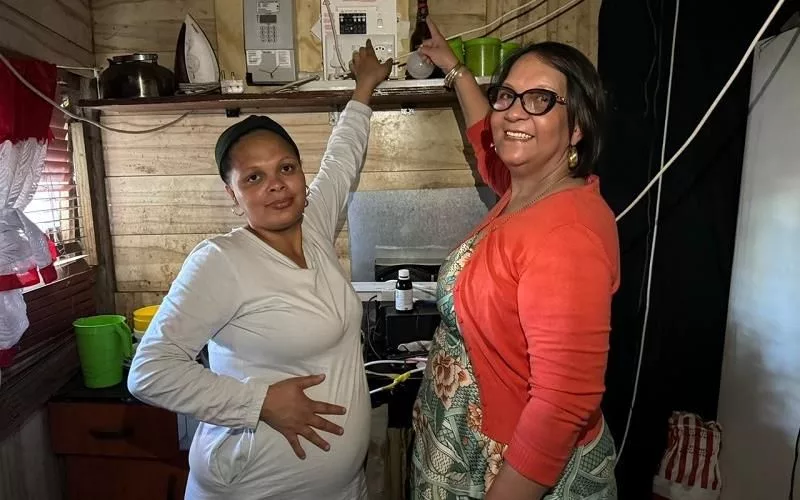Small-scale fishers in South Africa’s Western Cape have been granted 15-year fishing rights, benefiting 62 small-scale fishing co-operatives and 3,850 declared fishers. This allocation is a significant shift in the landscape, paving the way for the formal recognition of the Western Cape’s fishing communities, stimulating economic growth, supporting food security, and legitimizing traditional fishing practices. The Department collaborated with Community-Based Organizations and fishing communities to register co-operatives and launched training workshops to prepare for the allocation of small-scale fishing rights, and is currently working on creating a sustainable and economically viable species mix. This historic milestone in South Africa’s fisheries sector amplifies the excitement of the beginning of the West Coast Rock Lobster fishing season.
What is the significance of the recent fishing rights allocation in South Africa?
South Africa’s Department of Forestry, Fisheries, and Environment recently granted 15-year fishing rights to small-scale fishers in the Western Cape, benefiting 62 small-scale fishing co-operatives and 3,850 declared fishers. This allocation paves the way for the formal recognition of the Western Cape’s fishing communities, stimulates economic growth, supports food security, and legitimizes traditional fishing practices. The allocation of these rights marks the end of an interim relief period and signifies a significant shift in the landscape for these individuals.
South Africa’s Department of Forestry, Fisheries, and Environment recently celebrated a landmark achievement in the fisheries sector. The department has granted 15-year fishing rights to small-scale fishers in the Western Cape. This ground-breaking development not only benefits 62 small-scale fishing co-operatives, a group that includes 3,850 declared fishers, but also signifies a significant shift in the landscape for these individuals.
The allocation of these fishing rights marks the end of an interim relief period and paves the way for the formal recognition of the Western Cape’s fishing communities. These communities have been actively participating in fishing for centuries. Minister Creecy underscored the historical importance of this event, highlighting that these communities have been enduring systematic exclusion due to past injustices, which greatly hindered their participation in fishing activities.
The awarding of these rights provides the co-operatives with the opportunity to create jobs and stimulate economic growth within their communities. This step also supports food security and legitimizes traditional fishing practices. Minister Creecy reiterated the Department’s dedication to fostering the growth and development of the sector, despite the foreseeable challenges.
Preparations and Future Plans
In anticipation of this allocation, the Department collaborated with Community-Based Organizations and fishing communities to register co-operatives. This process helped identify suitable species and fishing areas for the co-operatives’ use. The Department also launched training workshops with the intent of formally registering co-operatives as community-based legal entities in preparation for the allocation of small-scale fishing rights.
Minister Creecy disclosed that the Department is currently working on creating a sustainable and economically viable species mix for the small-scale sector. The species allocated so far include commercial traditional line-fish, West Coast Rock Lobster, Seaweed, bait species, abalone, aquaculture ranching sites, net-fish species, white mussels, oysters, and hake handline.
A few years ago, a survey by the Department revealed several challenges faced by small-scale fishers in the Western Cape. These included lack of market access, inadequate infrastructure, and difficulties in integrating into broader fishing value chains. To combat these issues, the Department put in place a Support Strategy involving agreements with the Department of Small Business Development and a Maritime Academy.
Challenges and Successes
Prior to 2014, the fishing rights framework only acknowledged access rights in the recreational, commercial, and subsistence sectors. This arrangement marginalized many local fishing communities. Small-scale fishers were often deemed illegal due to their lack of authorization to participate in the regulated fishing sectors.
This situation changed in 2019 when the Marine Living Resources Act was amended to include small-scale fishers. The legislation now acknowledges an individual as a small-scale fisher if they are a part of a small-scale fishing community engaged in fishing to provide food and basic livelihood or are directly involved in fish processing or marketing.
Between 2016 and 2019, the Department began a nationwide process to allocate small-scale fishing rights, finalizing these rights in the Northern Cape, Kwazulu Natal, and the Eastern Cape in 2018, 2019, and 2020, respectively. In 2019, the Department received 8646 applications from individuals seeking recognition as small-scale fishers in the Western Cape. However, only 29% of these applicants were granted rights.
Following complaints about the verification process in 2020, the Minister ordered a review of the verification process for the Western Cape. Collaborating with Community-Based Organizations, the Department developed a fair process for verifying small-scale fishers. This led to over 5000 applications from 109 fishing communities in the Western Cape. Over 84% of the applicants were declared successful, a significant increase from the previous success rate of 29% in 2019.
Minister Creecy revealed that the Department received 461 appeals, each reviewed individually. She stated that all applicants would be successful unless they failed to provide proof that they met all the required criteria as per the Small-Scale Regulations. Of the appeals, 431 were upheld, resulting in a success rate of 93%.
This historic milestone in South Africa’s fisheries sector coincides with the beginning of the West Coast Rock Lobster fishing season, amplifying the excitement of this remarkable achievement.
What species have been allocated for small-scale fishing rights in the Western Cape?
The Department of Forestry, Fisheries, and Environment is currently working on creating a sustainable and economically viable species mix for the small-scale sector. The species allocated so far include commercial traditional line-fish, West Coast Rock Lobster, Seaweed, bait species, abalone, aquaculture ranching sites, net-fish species, white mussels, oysters, and hake handline.
What preparations were made for the allocation of small-scale fishing rights in the Western Cape?
In anticipation of this allocation, the Department collaborated with Community-Based Organizations and fishing communities to register co-operatives. They also launched training workshops to prepare for the allocation of small-scale fishing rights. This process helped identify suitable species and fishing areas for the co-operatives’ use.
What challenges did small-scale fishers in the Western Cape face before the recent allocation of fishing rights?
Prior to 2014, the fishing rights framework only acknowledged access rights in the recreational, commercial, and subsistence sectors. This arrangement marginalized many local fishing communities. Small-scale fishers were often deemed illegal due to their lack of authorization to participate in the regulated fishing sectors. The recent allocation of fishing rights marks a significant shift in the landscape for these individuals.
What successes have been achieved in the small-scale fishing sector in South Africa in recent years?
Between 2016 and 2019, the Department began a nationwide process to allocate small-scale fishing rights, finalizing these rights in the Northern Cape, Kwazulu Natal, and the Eastern Cape in 2018, 2019, and 2020, respectively. In 2019, the Marine Living Resources Act was amended to include small-scale fishers. The legislation now acknowledges an individual as a small-scale fisher if they are a part of a small-scale fishing community engaged in fishing to provide food and basic livelihood or are directly involved in fish processing or marketing.
How did the recent verification process for small-scale fishers in the Western Cape differ from the previous process in 2019?
Following complaints about the verification process in 2020, the Minister ordered a review of the verification process for the Western Cape. Collaborating with Community-Based Organizations, the Department developed a fair process for verifying small-scale fishers. This led to over 5000 applications from 109 fishing communities in the Western Cape. Over 84% of the applicants were declared successful, a significant increase from the previous success rate of 29% in 2019.
What is the Support Strategy put in place by the Department to address challenges faced by small-scale fishers?
A few years ago, a survey by the Department revealed several challenges faced by small-scale fishers in the Western Cape, including lack of market access, inadequate infrastructure, and difficulties in integrating into broader fishing value chains. To combat these issues, the Department put in place a Support Strategy involving agreements with the Department of Small Business Development and a Maritime Academy.








